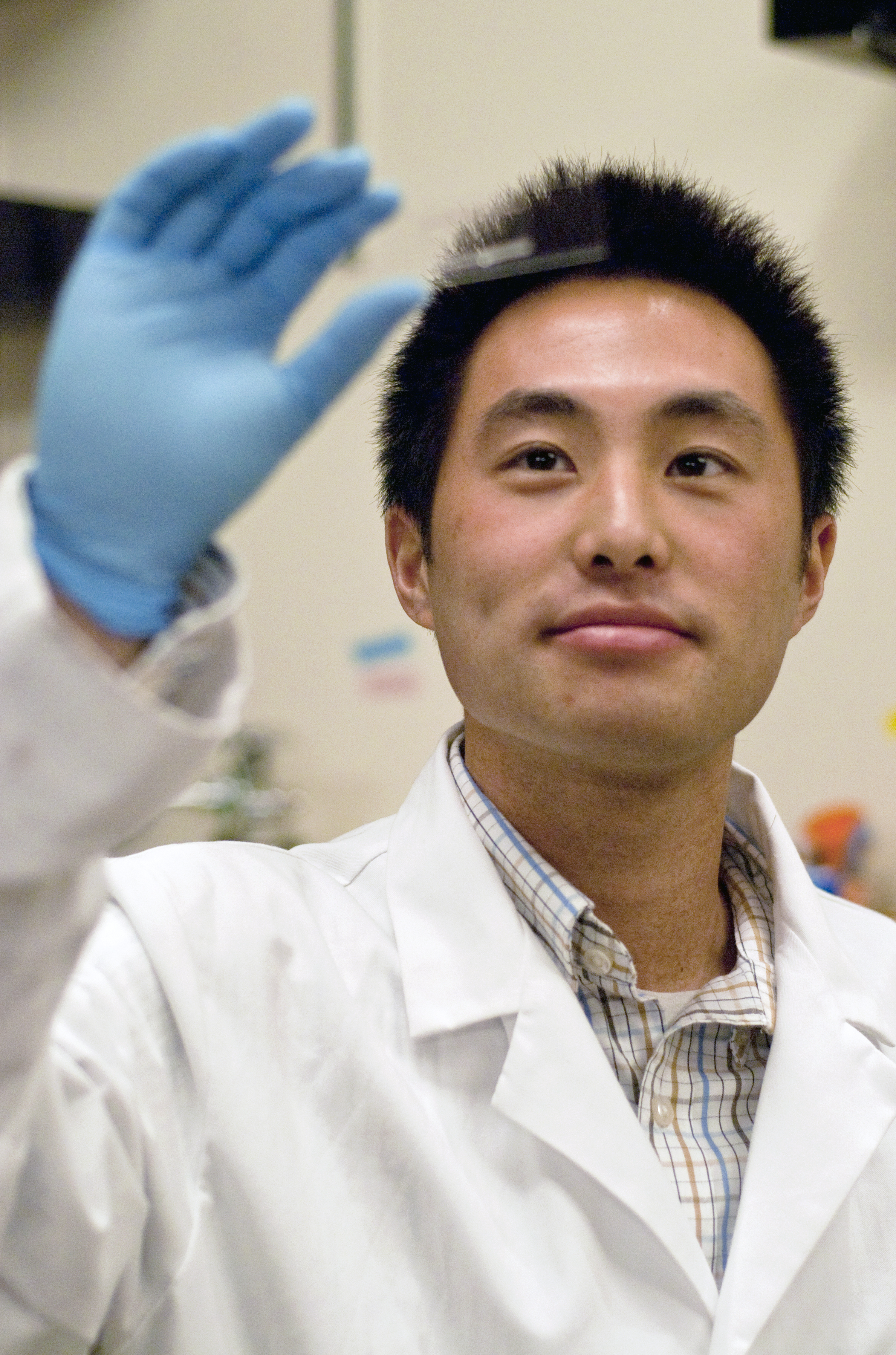UCLA grad student develops microchip to help detect cancer

Albert Mach took a leading role in developing technology that could help diagnose and monitor cancer with a blood test.
By Kristen Taketa
Feb. 10, 2012 1:23 a.m.
Albert Mach loved playing with Legos as a kid.
He and his brother would buy sets of Legos, follow the instructions, then tear it down and build their own creations.
“Those were my baby steps to engineering,” Mach said with a laugh.
Now a biomedical engineering graduate student, Mach has gone far since his Lego-building days.
Mach, along with a team of undergraduate, graduate and post-doctorate bioengineering students at UCLA, has worked to create an innovative piece of technology, called a “centrifuge-on-a-chip,” that could help doctors diagnose and monitor cancer in a patient with a simple blood test.
For his leading role in developing the microchip, Mach was named in Forbes’ 30 under 30 list for science, a list of people under 30 who have made a significant impact in the field of innovation, in December 2011.
The invention is named a centrifuge-on-a-chip because it mimics the cell sorting process a standard centrifuge would perform, said Dino Di Carlo, assistant professor of bioengineering and mentor for the microchip project.
The project was begun by Mach, Di Carlo, and Soojung Claire Hur, a former UCLA graduate student who is currently a fellow at Harvard University’s Rowland Institute for Science, and Mach has headed the project since, Di Carlo said.
Growing up in Silicon Valley, Mach had an early and well-founded interest in bioengineering.
In addition to his early passion for building with Legos, Mach was exposed to the prospect of engineering by his family of engineers. Later, he volunteered at the Tech Museum in San Jose, where he explained different exhibits to visitors in the Life Tech Gallery, the museum’s section on biotechnology.
After receiving a bachelor’s degree in bioengineering from UC Berkeley in 2008, Mach came to UCLA and helped set up Di Carlo’s Microfluidics Lab, Di Carlo said. He has been one of the bioengineering department’s most involved students ever since.
“Albert’s been a great student,” Di Carlo said. “He was one of the students who helped set up the lab in 2008. He’s basically been the one leading the (microchip) project.”
The new technology may facilitate the current method of cancer diagnosis. The chip would allow the filtering of cancer cells from a blood sample, which would be an easier way to harvest cancer cells, rather than the current method of taking them from tumor sites in the body.
“(The chip) can potentially help quite a bit in early diagnosis of cancers,” said Westbrook Weaver, a bioengineering graduate student and Mach’s fellow lab member. “Early detection can help increase the likelihood of success in treatment.”
When a blood sample is filtered through the microchip, smaller red blood cells will pass through the chip’s specially sized holes. Cancer cells, which are typically larger, will remain trapped inside the chip, Mach said.
These cells could provide information for doctors to prescribe more appropriate drugs for patients and help researchers develop new drugs to target the cancer, he said.
He added that doctors could potentially use the technology to detect how many and what kind of cancer cells are in the bloodstream before they manifest into more tumors.
By determining how many cancer cells are still in a patient’s blood after chemotherapy, radiation, or surgery, the microchip may also be able to evaluate the effectiveness of cancer treatments, Mach said.
He said he and his team members are currently working to make the microchip commercially viable.
“That’s what is really important, not only making something that’s interesting to the scientific community, but also to the clinical community,” Mach said.
The project is very tentative right now, Mach said, but he hopes the technology can soon be available to facilitate cancer diagnosis for everyone.
He said the project is one way to contribute to humanity. If it pushes finding the cure for cancer one step forward, Mach said, he would be satisfied.
“Engineers make tools to make a difference,” he said.


